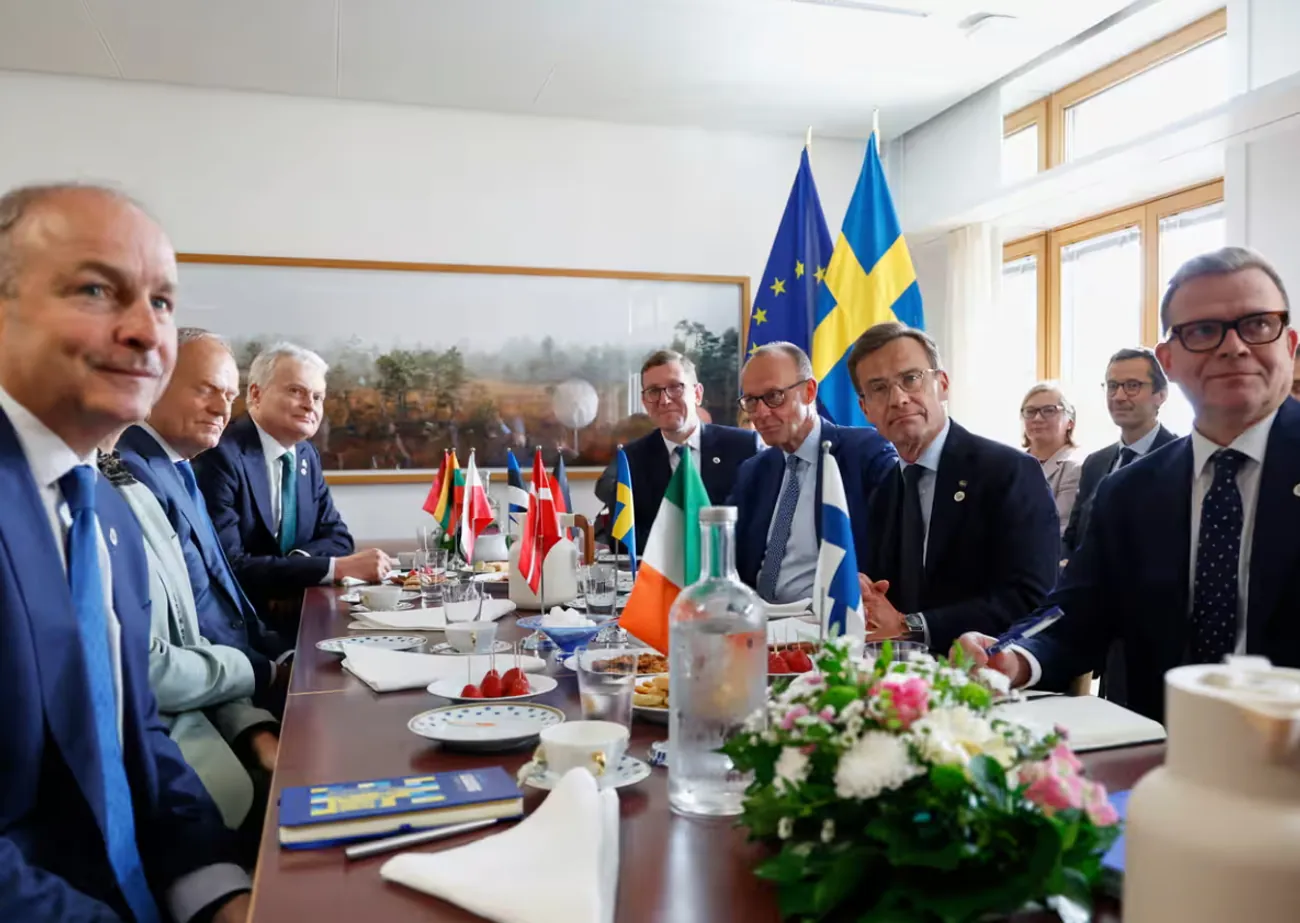“EU leaders discuss US response on tariffs amid Trump’s ‘grace’ period expirationEU leaders are discussing two options: concluding a quick trade agreement or a tough response to Trump’s threats of 50% tariffs on
all goods from the EU. A decision must be made by July 9, when the “grace” period expires.
”, — write: unn.ua
DetailsEuropean Commission President Ursula von der Leyen is expected to brief EU heads of state and government on the progress of negotiations with Washington.
A decision must be made by July 9. On this date, US President Donald Trump announced the introduction of 50% tariffs on all goods from the EU if another agreement, beneficial to the US, is not reached. Currently, most goods from the European Union are subject to a 10% duty, but for cars and auto parts, it reaches 25%, and for steel and aluminum — 50%.
Ursula von der Leyen, as the head of the European Commission, is responsible for foreign trade on behalf of all 27 member states, but currently needs a political mandate for further action.
German Chancellor Friedrich Merz, upon arriving at the summit in Brussels, expressed support for the European Commission’s efforts to conclude a trade agreement as soon as possible. Irish Prime Minister Micheál Martin emphasized that such an agreement would ensure predictability for businesses and help protect jobs.
Meanwhile, Spanish Prime Minister Pedro Sánchez sharply criticized Trump’s position, calling it “doubly unfair,” as Spain has a trade deficit with the US. This was a response to Trump’s statement that Spain would “pay twice as much” due to Sánchez’s refusal to meet the requirement of 5% defense spending within NATO.
Diplomats consider the cancellation of the current 10% tariffs increasingly unlikely. Brussels is now considering two scenarios. Either a compromise agreement will be reached for business stability. Or the EU will resort to an aggressive response in the form of mirror tariffs.
We either respond harshly or go for a quick compromise
The US has not yet shown interest in the EU’s proposal for a duty-free zone for industrial goods. Washington, at the same time, criticizes European digital market regulation and tax policy. Ursula von der Leyen has already stated that changes to the European Digital Markets Act, which affects large American tech companies, are not being considered.
Belgian Prime Minister Bart De Wever called for avoiding escalation.
We will not succumb to provocations. We will remain calm and seek agreements. If that fails, we will introduce countermeasures, but appropriate and balanced.
Trump said the US “hopes” to reach an agreement with the EU05.06.25, 21:10 • 3498 views
Currently, the EU has suspended duties on US goods worth 21 billion euros until mid-July to allow more time for negotiations. The possibility of introducing additional duties on imports from the US totaling 95 billion euros is also being considered. Although the actual amount is likely to be lower. Earlier, the European Union had already abandoned the idea of taxing American bourbon after protests from France and Ireland, which feared symmetrical sanctions against cognac and Irish whiskey.
Under pressure from German industry, Chancellor Merz criticized the European Union’s overly complex approach to negotiations and suggested focusing on five key sectors, including automotive, steel, and pharmaceuticals — the latter of which, he said, is Trump’s next potential target.
EU makes progress in trade talks with the US ahead of ‘tariff deadline’ – EU Commissioner20.06.25, 03:14 • 3540 views
